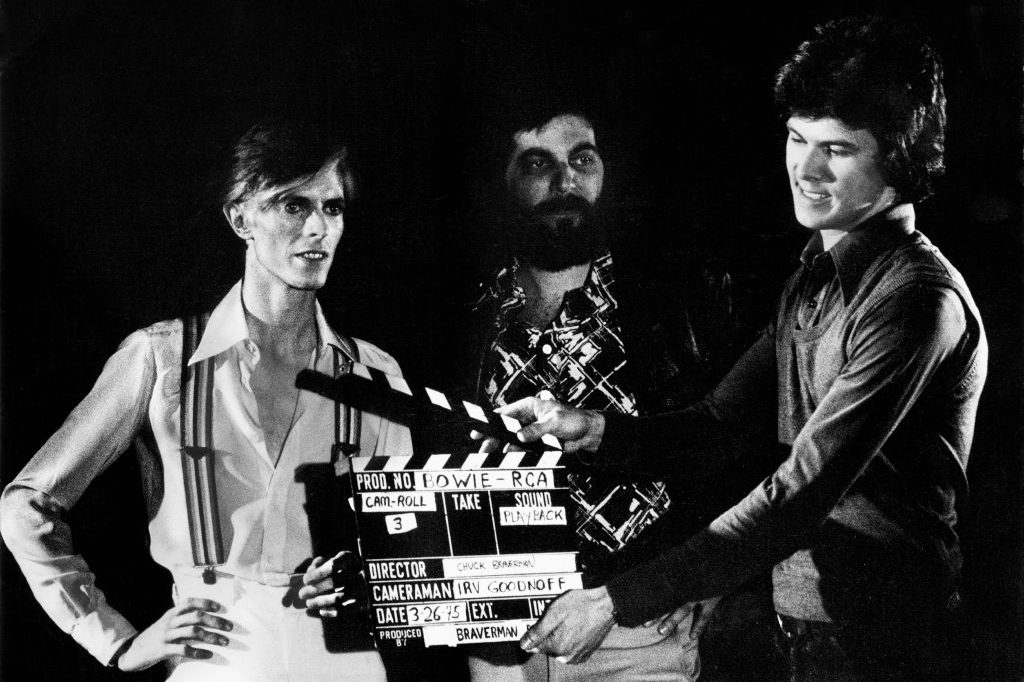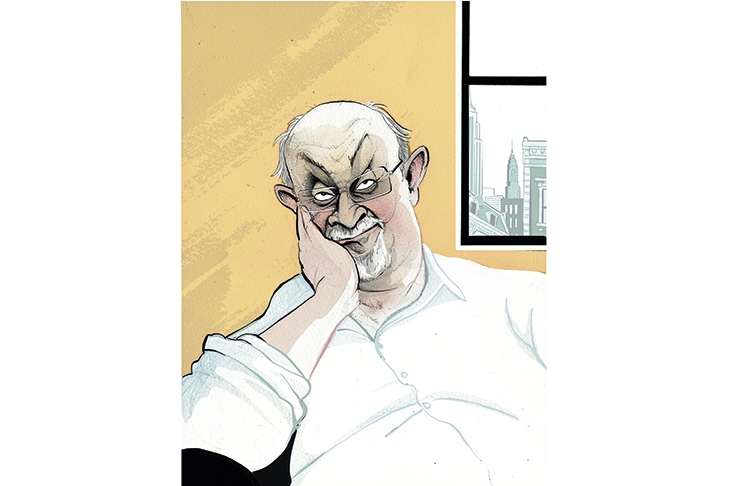I used to run into Salman Rushdie at London literary parties a couple of decades ago, before he became a US citizen in 2016 and largely made his life there afterwards. He was always charming and likable company, during the brief conversations that we had, and the worst that I would say of him is that he was all too aware of his own fame and reputation. Certainly, I was not the only one in a long line of admirers and acolytes wishing for a couple of moments with the great man, and Rushdie certainly paid rather more attention to the attractive women or girls than he did to the rather gauche young men who had read Midnight’s Children or The Satanic Verses. Still, it was hard to dislike anyone who, when asked when he was doing after one book launch, replied, “I’m going for dinner with Lou Reed and David Bowie.”
Those days are long behind us. Reed and Bowie are dead, and Rushdie was phenomenally lucky not to be, as well, after he narrowly survived an attempting stabbing when he appeared at a literary event at the Chautauqua Institution in upstate New York. There was no serious doubt as to the guilt of the perpetrator, 24-year-old Hadi Matar, and he was duly sentenced to the maximum 25-year sentence for attempted murder last week. Many, including myself, would consider this sentence inadequate for the now 27-year-old Matar, whose brutal act of premeditated violence only failed to become murder by pure fluke. In remarks made public during his sentencing, he claimed that, “Salman Rushdie wants to disrespect other people… He wants to be a bully, he wants to bully other people. I don’t agree with that.”
Matar will have a very long time to meditate upon his actions, and it is unlikely that Rushdie, now 77, will still be with us when his assailant is released from jail, if of course he is let out at all; Matar can now expect a federal trial on terrorism-related charges, during which questions of motivation will be probed more closely. It is commonly accepted that Rushdie’s most controversial title, The Satanic Verses, was indirectly responsible for Matar’s actions. It led to a notorious fatwah being declared upon the author, and although Rushdie was leading a reasonably normal life – albeit one in which his close friends included celebrities like Bono – by the time of the attack, what occurred on August 12, 2022 was a violent, hideous reminder that he will never truly be free of the terror that he lived under.
Rushdie reflected, affectingly, on the attack and its aftermath in a 2024 memoir, Knife, and made it clear that he is far from healed, physically or mentally. And still the wounds persist. Last week, he pulled out of addressing Claremont McKenna College at a commencement address after it was made clear that student and local pro-Palestinian and Islamic groups were unhappy about his attending the event. The Muslim Students Association president Kumail Afshar pronounced himself “surprised, relieved and happy” at Rushdie’s decision not to deliver his speech, even as the college president Hiram Codosh said that, “We remain steadfast in our commitment to Sir Salman’s visit to CMC and have extended an open invitation to him to speak on our campus in the future.”
This not only stems from the publication of The Satanic Verses – a book that virtually all the students would be too young to have experienced the controversy about firsthand – but remarks he made on a podcast last year, in which he said, “I would just like some of the [pro-Gaza] protests to mention Hamas. Because that’s where this started, and Hamas is a terrorist organization. It’s very strange for young, progressive student politics to kind of support a fascist terrorist group.”
Many Spectator readers might believe that Rushdie’s typically nuanced and insightful remarks are justifiable, even correct. Yet this sort of cancellation via the back door – where a situation is untenable but the onus must lie on the figure in potential danger, rather than the institution hosting – is more prevalent than it should be in 2025. Matar is in prison, and this is a good thing. But the ideology that led to his attack shows no signs of being defeated any time soon.


























Leave a Reply